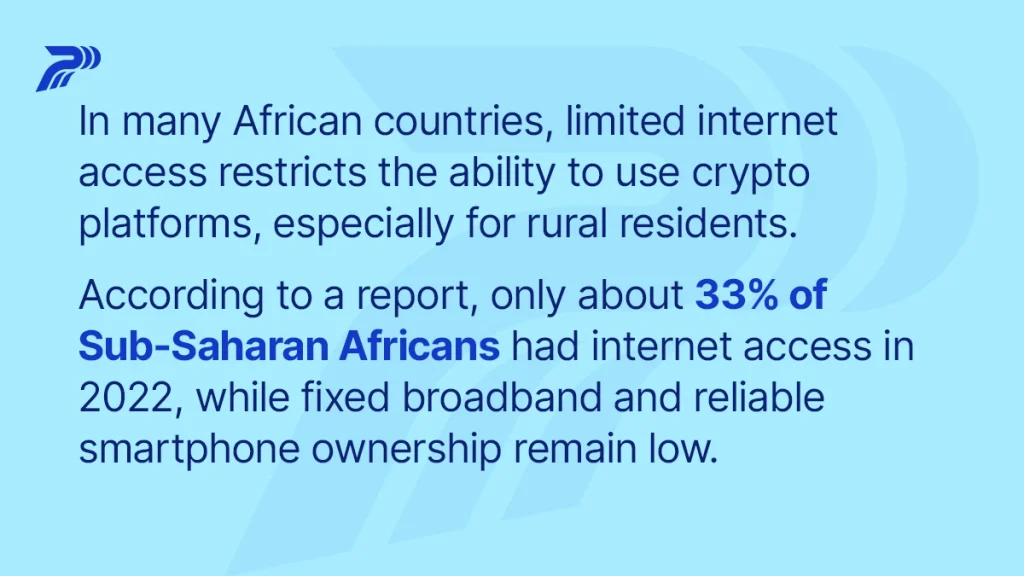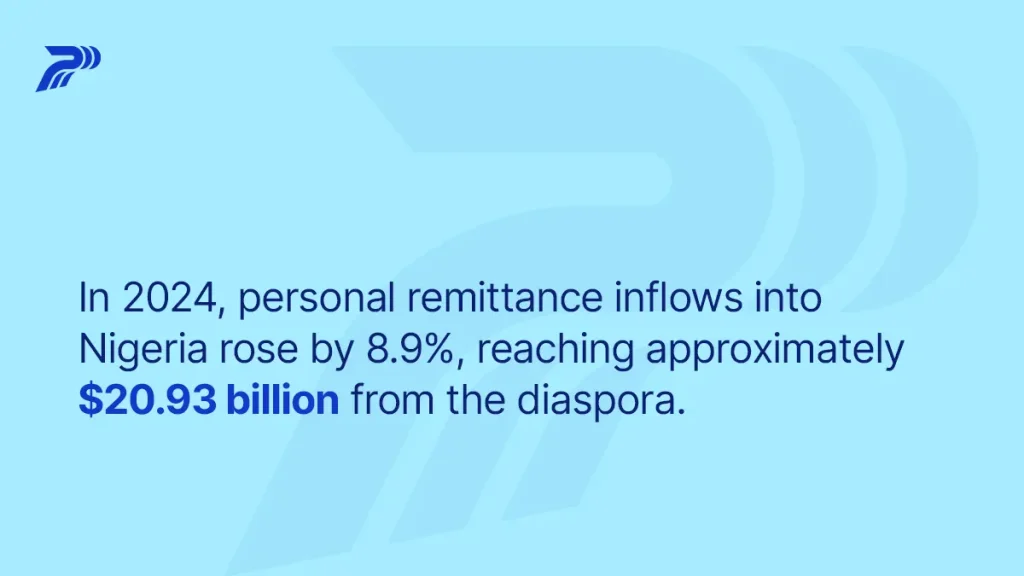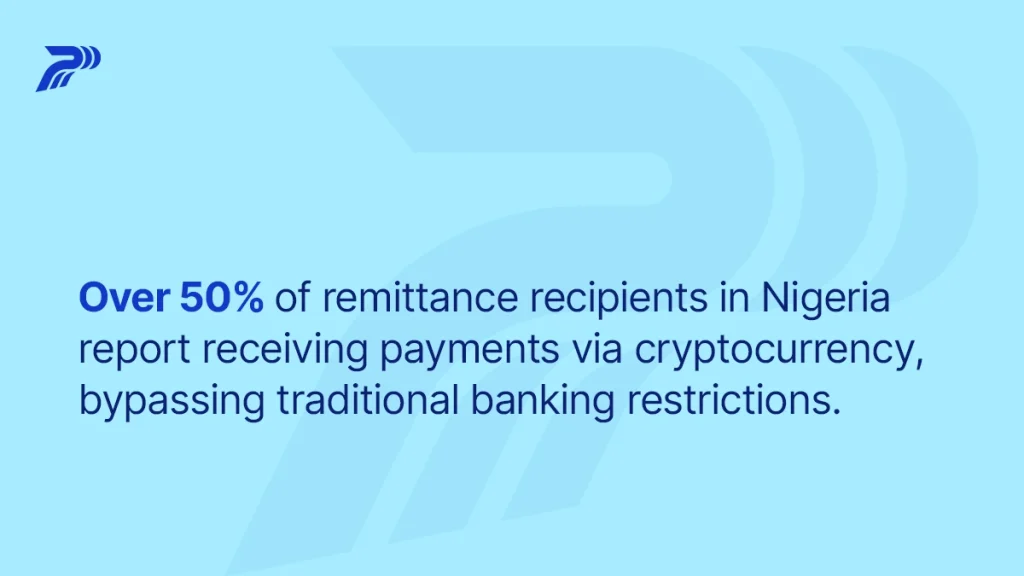Traditional banking and remittance services can be slow, costly, and frustrating. High fees, long processing times, and rigid systems often eat into the money you’re trying to send home. That’s why more people are turning to crypto for remittances. With cryptocurrency, cross-border transactions become faster, more affordable, and far more transparent. Instead of waiting days and losing money to hidden charges, you can send funds globally in minutes, with lower costs and greater convenience.
If you’ve also ever wondered about things like “Can crypto be used as money?” or “How do crypto payment methods work for international transfers?”, you’re in the right place and this article will answer all your questions, that’s a promise!
What Are Remittances?
Remittances are money transfers sent by individuals to family, friends, or businesses in another country. They’re especially important in developing nations, where they form a huge part of household income. For example, Nigeria is one of the top remittance-receiving countries in Africa, with billions flowing in annually from the diaspora.
Traditional Remittance Systems and Their Limitations
The current system, dominated by banks, Western Union, and MoneyGram comes with major pain points that frustrate the average Nigerian, including:
-
High fees — The World Bank estimates that sending money to Sub-Saharan Africa costs an average of 8% of the transfer amount.
-
Slow processing times — Transfers can take days to clear, especially across certain corridors.
-
Limited accessibility — Rural recipients without bank accounts face extra hurdles.
-
Currency conversion losses — Unfavorable exchange rates mean less money arrives at the destination.
What Are Crypto Remittances?
A crypto remittance is when money is sent in the form of cryptocurrency, such as Bitcoin, Ethereum, or stable coins like USDT and eNaira, instead of traditional fiat currencies.
The sender buys crypto, sends it directly to the recipient’s wallet, and the recipient can either:
-
Hold the crypto for future use, or
-
Convert it to local currency through crypto exchange platforms like Presto or via peer-to-peer (P2P) platforms.
The appeal? Near-instant transfers, low fees, and global accessibility.
Crypto For Remittances
How to Send Money to Another Country with Crypto Exchanges
Here’s a step-by-step example of how a Nigerian in the diaspora might send crypto to family back home:
- Choose a reliable crypto exchange or P2P platform (e.g., Binance, Coinbase, Luno, etc)
-
Buy cryptocurrency using your debit/credit card or bank transfer.
-
Send the crypto to your recipient’s wallet address.
-
Recipient converts crypto to naira instantly via Presto Crypto App or other local exchanges.
💡 Tip: Stable coins like USDT or USDC are popular for remittances because they’re pegged to the US dollar and avoid wild price swings.
Crypto Used in Remittances: Top Coins Nigerians Rely On
When it comes to sending money across borders, not all cryptocurrencies are created equal. In Nigeria and Africa at large, the choice often comes down to speed, stability, and global acceptance. Here are the top picks dominating the remittance space:
1. USDT (Tether) – The Stability King
For many Nigerians, USDT is the go-to coin for remittances. As a stable coin pegged to the US dollar, it protects recipients from the wild price swings of regular crypto. Plus, it’s available on multiple networks like TRC-20 and ERC-20, making transactions fast and cheap.
2. Bitcoin (BTC) – The Global Pioneer
While it’s not the cheapest or fastest option, Bitcoin’s global recognition makes it a solid choice for sending value internationally. Many remittance services and P2P exchanges in Nigeria accept BTC, making it easy to convert to naira.
3. Ethereum (ETH) – For the Tech-Savvy Sender
Ethereum is another major player in cross-border payments, offering fast settlement and high liquidity. It’s especially useful when sending funds to recipients who also invest or interact with DeFi platforms.
4. Binance Coin (BNB) – The Cost-Cutter
BNB, particularly on the BNB Smart Chain (BSC), offers low transaction fees and quick processing. It’s gaining traction in Nigeria for cost-effective remittances.
5. eNaira – Nigeria’s Own Digital Currency
Although adoption is still growing, the eNaira could play a bigger role in local and regional remittance flows. Its main advantage is that it’s backed by the Central Bank of Nigeria and can integrate with formal banking channels.
💡 Pro Tip: If you’re sending remittances regularly, pairing these coins with a trusted exchange like Presto ensures you get the best rates and fastest conversions to naira without the stress.
Crypto to Fiat Currency and Remittances
One of the biggest advantages of crypto remittances is how easily they can be converted to local currency. Platforms like the Presto Crypto App allow Nigerians to sell over 100+ cryptocurrencies — including Bitcoin and stable coins at the best rates and get instant Naira payouts directly into their bank account.
Crypto For Remittances: Examples
-
Philippines: OFWs use crypto platforms like Coins.ph to send money to family with lower fees than Western Union.
-
Nigeria: Diaspora workers send USDT to relatives, who instantly convert it to Naira via local P2P marketplaces.
-
El Salvador: Bitcoin remittances surged after BTC was made legal tender in 2021, reducing reliance on expensive banks.
Challenges and Barriers to Adopting Crypto for Remittances in Africa
 While promising, there are still obstacles:
While promising, there are still obstacles:
-
Regulatory uncertainty – Some African countries like Nigeria restrict or ban crypto trading.
-
Technical literacy – Not everyone knows how to operate wallets securely.
-
Volatility – Non-stable coin cryptos can lose value quickly.
-
Fraud risks – Scammers target inexperienced users.
The Future of Crypto Remittances in Nigeria
The future of crypto remittances in Nigeria looks promising, but it will depend heavily on regulation, infrastructure, and public adoption. With the country ranking among the top crypto adoption nations globally, it’s clear Nigerians are already comfortable using digital assets for cross-border payments.
Over the next few years, we can expect:
1. More Regulatory Clarity
The Central Bank of Nigeria (CBN) and SEC Nigeria are gradually warming up to crypto regulations. Clearer policies could unlock mainstream financial institutions’ participation, making crypto remittances safer and more widely accepted.
2. Increased Use of Stable Coins
Volatility has been a major hurdle, but stable coins like USDT and USDC solve this by pegging value to the US dollar. Their usage in remittances will likely skyrocket as Nigerians demand faster, cheaper, and more predictable transfers.
3. Integration with Local Banking Systems
We could see more platforms offering instant crypto-to-naira conversions, directly into bank accounts or mobile money wallets. This would remove the need for manual P2P swaps and make remittances as seamless as sending a WhatsApp message.
4. Rise of Africa-Focused Crypto Networks
Blockchain networks optimized for African markets could emerge, offering ultra-low fees and multi-currency support tailored to the continent’s needs.
5. Government-Backed Digital Currencies in Remittances
If the eNaira gains traction, it could be paired with blockchain-based international payment systems, making Nigeria a leader in digital currency-driven remittance innovation.
💡 Bottom Line: Nigeria is poised to become a hub for crypto remittances in Africa. As technology improves and regulations adapt, sending money abroad with crypto could soon be as normal as a bank transfer — only faster and cheaper.
Frequently Asked Questions Around Crypto For Remittances
Q1: What is a crypto remittance?
A crypto remittance is sending money to someone in another country using cryptocurrency instead of traditional banking channels.
Q2: How do you use crypto for remittance?
You buy crypto from an exchange, send it to the recipient’s wallet, and they convert it to local currency through an exchange or P2P platform.
Q3: How many people use Bitcoin for remittances?
Exact numbers vary, but the Chainalysis 2023 Global Crypto Adoption Index shows that millions in Africa, Latin America, and Asia use Bitcoin and stablecoins for cross-border transfers.
Q4: What is a crypto-to-fiat remittance?
It’s when crypto sent by a sender is converted into local currency by the receiver, usually through an exchange like Presto.
Q5: What is the most used crypto for payments?
Globally, USDT (Tether) is currently the most used for payments and remittances because it’s stable and widely supported.
Q6: Can crypto be used as money?
Yes! While it is not a legal tender in most countries, crypto can be used for payments, savings, and remittances if both parties accept it.
💡 Pro Tip for Nigerians: If you want the fastest way to receive crypto remittances and get instant Naira payouts at the best rates, Presto App is your go-to solution — safe, simple, and trusted nationwide.






